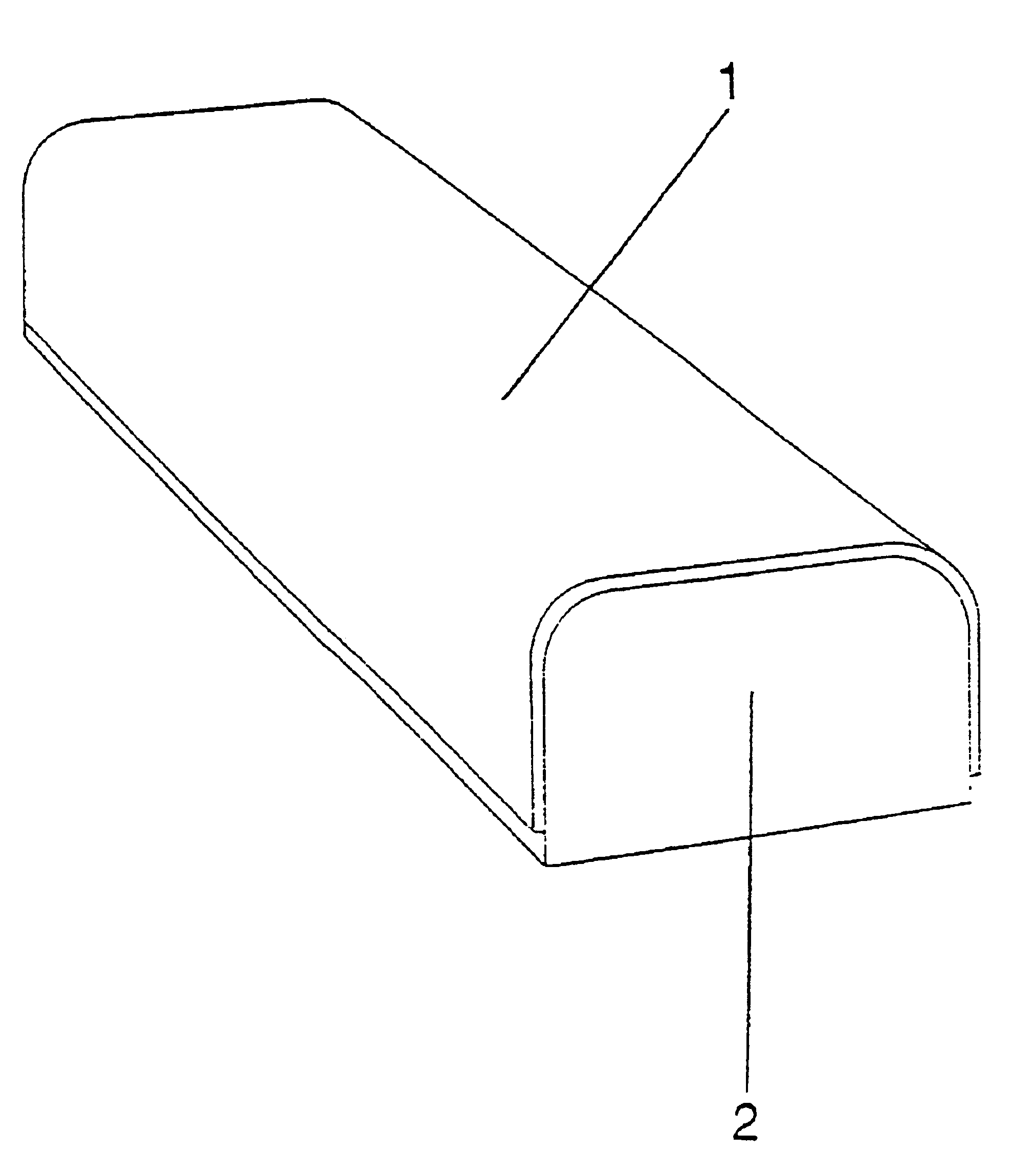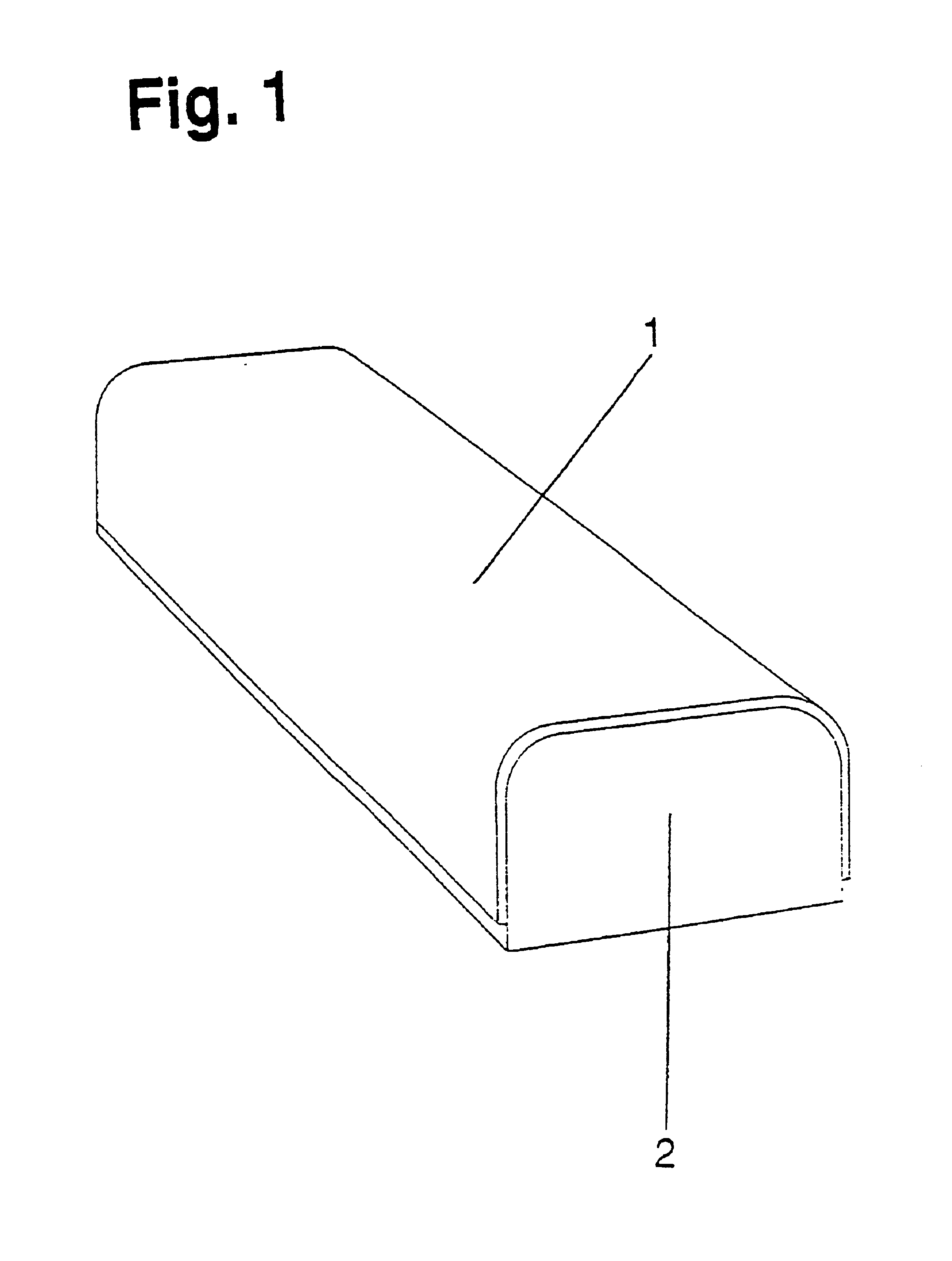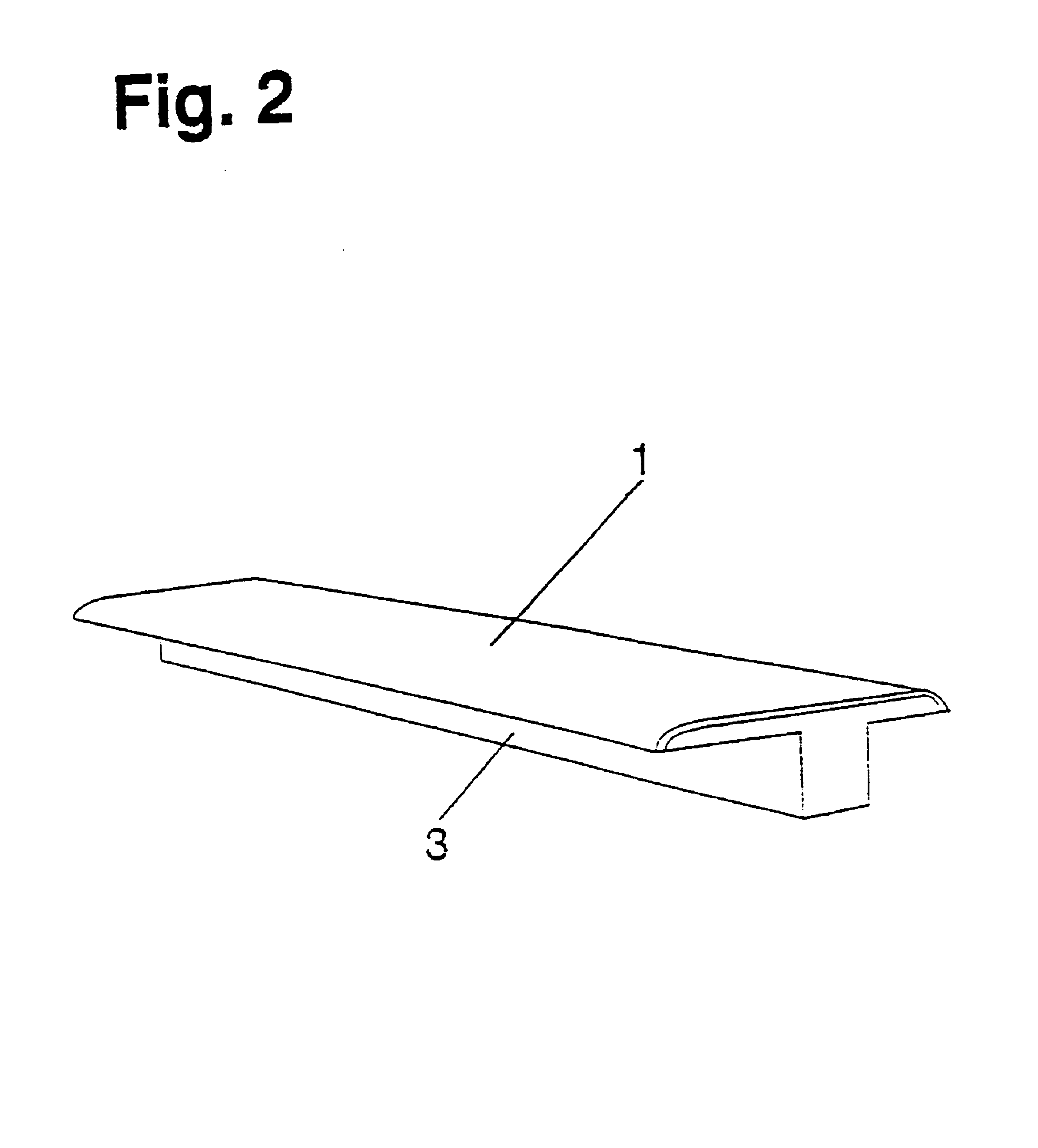Floor strip
a technology of floor strips and strips, applied in the field of floor strips, can solve the problems of conventional floor strips not adequately providing a transition between different floor types, previously known strips not going well together with all the other floor patterns, and floor strips generally not adequately matching the pattern of the other portions of the floor
- Summary
- Abstract
- Description
- Claims
- Application Information
AI Technical Summary
Benefits of technology
Problems solved by technology
Method used
Image
Examples
Embodiment Construction
[0034]In the figures of illustrating a floor strip 100, the thickness of the post-forming laminate 1 has been magnified as compared to the size of the carrier 2 and the profiles, e.g. 3-5 respectively, to better illustrate that a post-forming laminate 1 is glued to the carrier 2 and the profiles 3-5 respectively. Of course the FIGS. 1-4 only show one embodiment of the carrier 2 and the profiles 3-5 respectively which can be produced according to the invention. Various other designs are possible as shown in the other drawing figures.
[0035]For example in one embodiment, a roll of transparent so-called overlay paper of α-cellulose with a surface weight of 25 g / m2 is impregnated with an aqueous solution of melamine-formaldehyde resin to a resin content of 70 percent by weight calculated on dry impregnated paper. Immediately after the impregnation, aluminium oxide particles with an average particle size of 50 μm are applied to the upper side of the paper in an amount of 7 g / m2 by means o...
PUM
| Property | Measurement | Unit |
|---|---|---|
| particle size | aaaaa | aaaaa |
| particle size | aaaaa | aaaaa |
| particle size | aaaaa | aaaaa |
Abstract
Description
Claims
Application Information
 Login to View More
Login to View More - R&D
- Intellectual Property
- Life Sciences
- Materials
- Tech Scout
- Unparalleled Data Quality
- Higher Quality Content
- 60% Fewer Hallucinations
Browse by: Latest US Patents, China's latest patents, Technical Efficacy Thesaurus, Application Domain, Technology Topic, Popular Technical Reports.
© 2025 PatSnap. All rights reserved.Legal|Privacy policy|Modern Slavery Act Transparency Statement|Sitemap|About US| Contact US: help@patsnap.com



